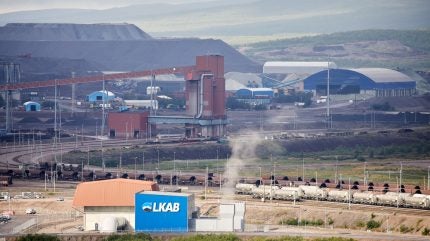
State-owned Swedish mining company LKAB has applied for strategic project designation under the European Union (EU)’s Critical Raw Material Act (CRMA).
The application covers three projects. The first is for the construction of a new processing plant for apatite at LKAB’s existing iron ore mine in Gällivare.
The second project, planned at the industrial site in Luleå, intends to produce rare earth metal oxides, gypsum, and phosphoric acid using apatite from Gällivare.
The third includes expanded production at the company’s new deposit in Kiruna. According to LKAB, the Per Geijer deposit is one of Europe’s largest deposits of rare earth oxides, with an estimated resource of 1.7 million tonnes in situ.
Citing the dominance of China in rare earth oxides, LKAB aims to commence production and serve global markets by 2030.
LKAB president and CEO Jan Moström commented: “With increased geopolitical uncertainty and the fact that China now controls nearly the entire value chain there is a considerable economic risk for European industry.”
The company claims that it mines 80% of the iron ore in the EU and its deposits contain all 17 rare earth metals, of which seven are classified as critical raw materials in the EU.
Moström added that mining a combination of minerals would allow for LKAB to become “more resistant to the type of price manipulation on the market for rare earth metals which we have seen historically.”
Implemented in May, the EU’s CRMA aims to diversify the region’s critical raw material supply chains while improving capacity to monitor and mitigate risks of disruptions.
Strategic projects under the CRMA must contribute to the security of raw material supplies, become technically feasible within a reasonable timeframe, show expected production volumes, and be implemented sustainably.
On 21 August, Finnish state-owned mining company Terrafame applied for strategic project designation for its Kolmisoppi project. This deposit serves the battery value chain in Europe with nickel, zinc, cobalt, copper and natural uranium.



